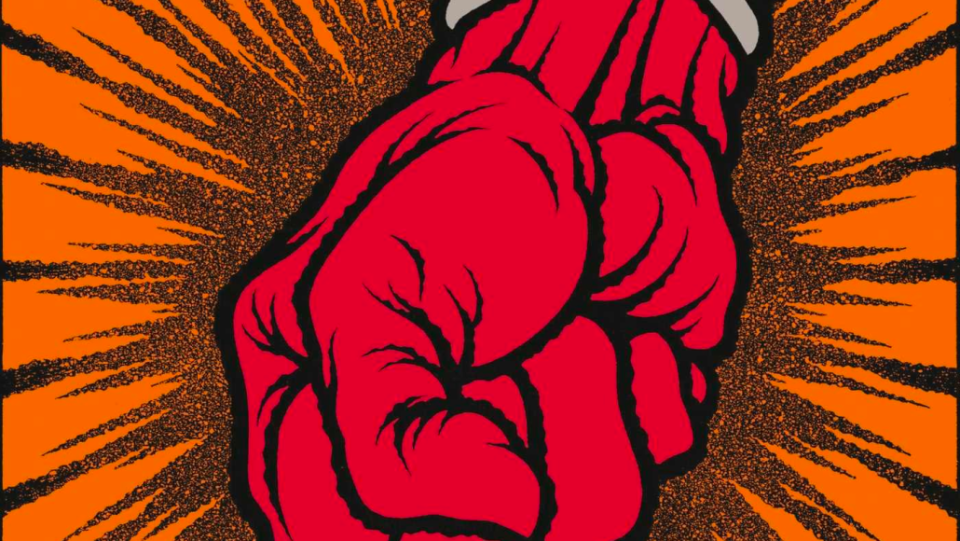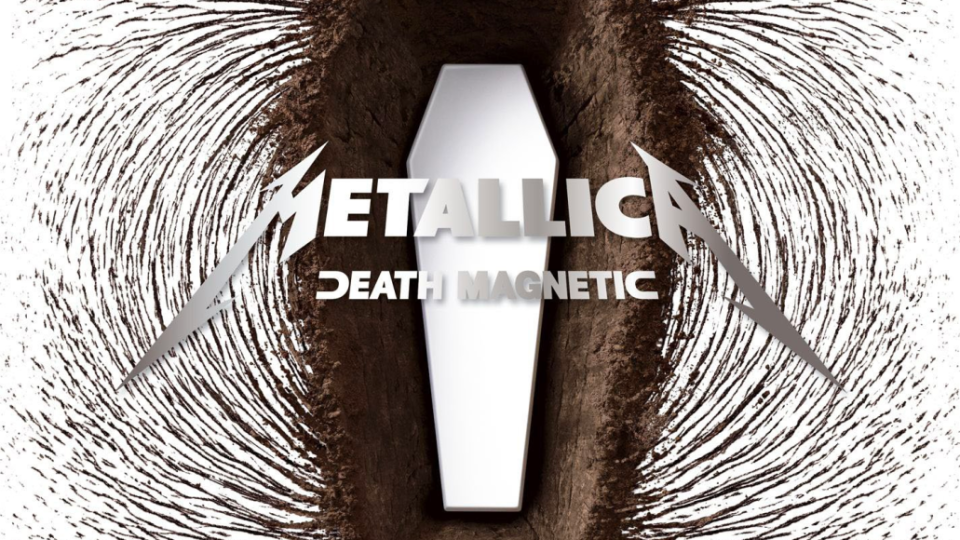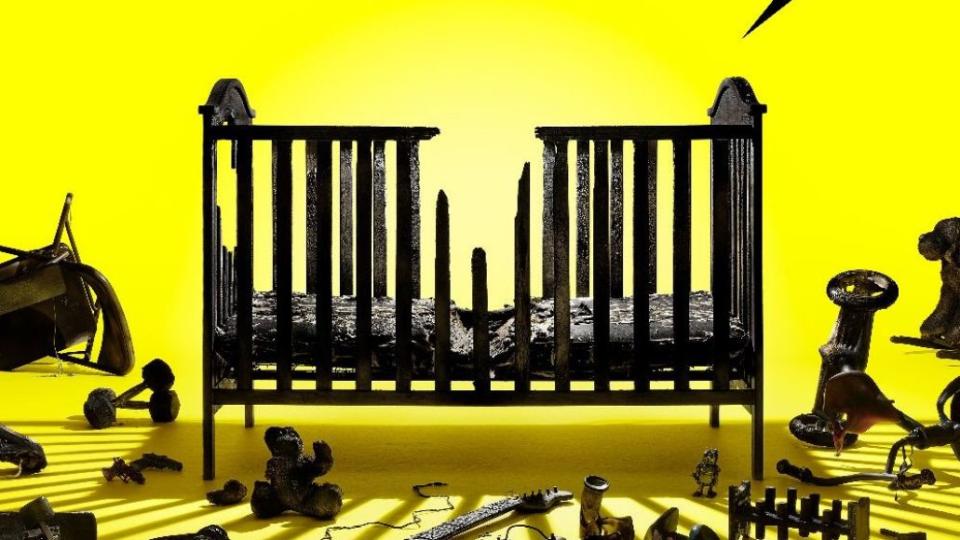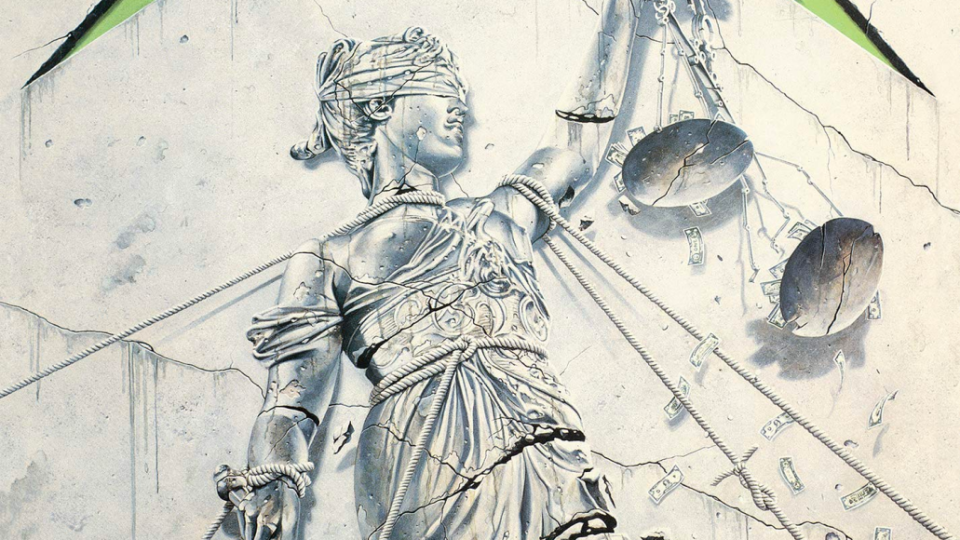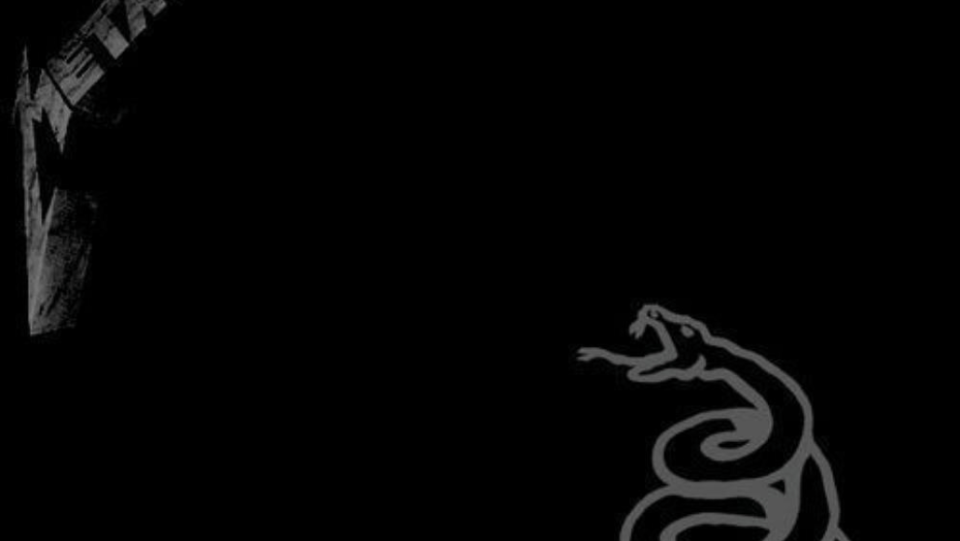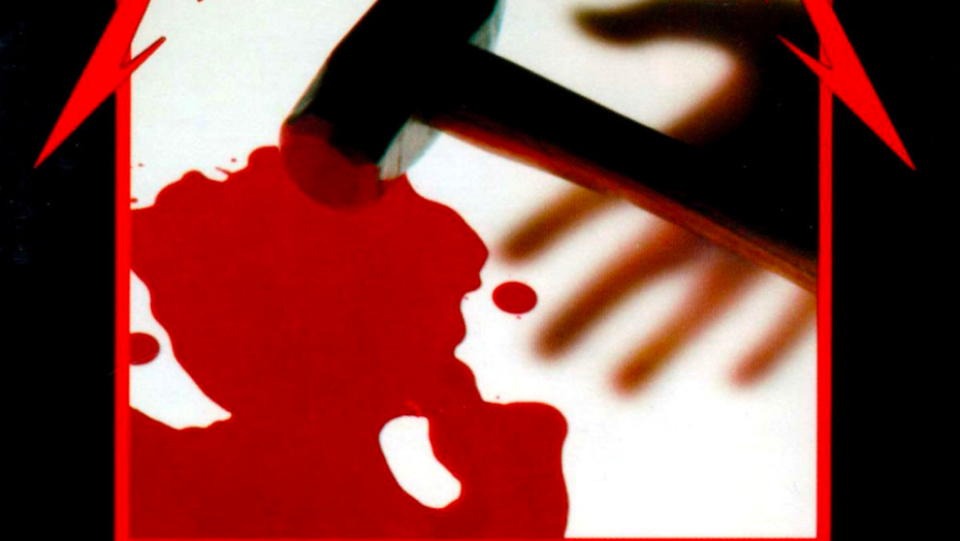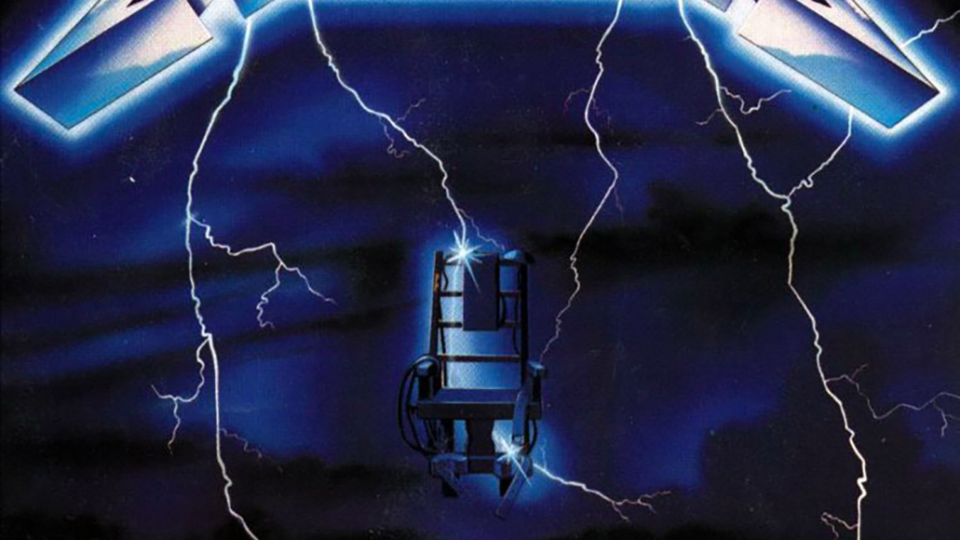A Definitive Ranking of Every Metallica Album
- Oops!Something went wrong.Please try again later.
- Oops!Something went wrong.Please try again later.
- Oops!Something went wrong.Please try again later.
- Oops!Something went wrong.Please try again later.
The post A Definitive Ranking of Every Metallica Album appeared first on Consequence.
Welcome to Dissected, where we disassemble a band’s catalog, a director’s filmography, or some other critical pop-culture collection in the abstract. It’s exact science by way of a few beers. This time, we follow Metallica’s roller-coaster ride from Kill ‘Em All to 72 Seasons. Also be sure to check out Consequence’s new Metallica cover story.
Metaphors alone don’t do justice to the career path of Metallica, mostly because there are so many that could be applied to their unusual trajectory: treacherous ocean voyage, marathon, following Billy from the “Family Circus” on one of his dotted-line adventures.
Metallica have wound their way out of the underground metal scene in the early ‘80s, earning the respect and admiration from their peers and fans for their awe-inspiring talent and hard-nosed view of the traditional paths of music promotion. They survived the death of their beloved bassist Cliff Burton and the arrival and acrimonious departure of his replacement, Jason Newsted, finding untold levels of success along the way.
They became something of a punchline around the time that they took on Napster and decided to let a film crew capture their album/group therapy sessions in Some Kind of Monster. And they’ve slowly grinded away since, reaching a level of fame that even the most begrudging metalhead has to respect. That they’ve made it this long after watching one of their best friends die, being called “Alternica” for seemingly abandoning their thrash roots, and recording an almost universally reviled album with Lou Reed is something that deserves some measure of admiration. (Note: For this list, we didn’t include Lulu, as we consider it a collaborative LP, and not a full-on Metallica album).
What has never been up for debate is the work that Metallica has put into every song they’ve recorded. Whether that’s a bone-crunching cover of a Diamond Head classic or a challenging original song that nimbly jumps between time signatures, they are as hard-nosed about making it as great as they can. That it sometimes becomes an instant classic like “Creeping Death” or an unfortunate belly flop like “St. Anger” is simply the dull truth about creativity. Eventually, the biggest bands can fail amidst their many successes.
Looked at in total, the scales are tipped in Metallica’s favor. Even tossing out a good portion of the work they did during that fraught middle period that resulted in Load, Reload, and St. Anger, still leaves the world with one of the most inventive and respected catalogs of heavy music ever created. And they’re still going strong, releasing their newest full-length, 72 Seasons, roughly 40 years after their debut album, Kill ‘Em All.
— Robert Ham,
Contributing Writer
Editor’s Note: This list was updated in 2023 to include Metallica’s newest album, 72 Seasons.
11. Reload (1997)
Pounding Out Aggression, Turns Into Obsession (Analysis): Metallica had all the clout, goodwill and money to burn following the world-beating success of their 1991 self-titled disc (aka “The Black Album”). They responded as every headbanger feared they would: they squandered it. The quartet hit The Plant Studios in Sausalito, California with grand ambitions to release a double album. When they couldn’t finish all the songs in time, they split the material up, releasing Load in 1996 and Reload a year later and justifying the decision as best they could. (“[If] we did a double album, it would have been a lot more material for people to digest, and some of it might have gotten lost in the shuffle,” Kirk Hammett told Guitar World in 1997.)
What they couldn’t justify was how leaden and lost they sounded on Reload. The thrash had now been completely stripped away, replaced by grunge-inspired tempos and atmospheres that hung on the band members like an ill-fitting suit. And, too often, it sounded like Metallica had just run out of ideas and went into recycle mode. They weren’t casual about it either. They wrote an actual sequel to their Top 40 hit “The Unforgiven” with none of the sinew and grit. “Devil’s Dance” and “Better Than You” looked to hit the same lane as “Sad But True” with a touch of Black Sabbath psych wound around the core with middling results. Even “Enter Sandman” gets flipped with little wit into the silly “Slither” (“Hey, tie your tap shoes tightly”).
The worst offense though was muzzling Hammett. Throughout Reload, he is reduced to the role of a better-than-average rhythm guitarist. What air he does find to soar in quickly gets swallowed up by the inky black fog his bandmates were in. Whether letting him loose could have saved this album is arguable, but stuffing him in the band’s collective pocket still feels unforgivable.
Gimme Fuel, Gimme Fire (Best Song): Metallica rarely get self-reflective which instantly sets “The Memory Remains” apart from the pack. This slinky mid-tempo tune comments on the filthy side of their success, offering small threads, like a lyrical reference to “Fade To Black,” that keep them connected to their past glories. They also let British goddess Marianne Faithfull swoop in like an angel of mercy to offer a small wordless bridge vocal that cuts right through the gloom.
The Thing That Should Not Be (Worst Song): For the best example of just how puffed up Metallica was feeling at this time, look no further than “Low Man’s Lyric,” a hurdy-gurdy laden power ballad that carries on for seven-and-a-half interminable minutes and features one of James Hetfield’s most goofily impassioned vocal performances. — Robert Ham
10. St. Anger (2003)
Pounding Out Aggression, Turns Into Obsession (Analysis): The “post-Jason Newsted” album. The “Phil Towle, group therapy” album. The “I would say: delete that…for me, it doesn’t cut it” album. The “Lars Ulrich sounds like he’s playing drums made out of old oil barrel while wearing weighted gloves” album. The “madly in anger with you” album. The non-guitar solo album. The “Bob Rock scorching the last remnants of goodwill he had accrued with Metallica through a recording process that seemed unbearably long and a mixing/editing process that pushed his thudding bass parts into the spotlight and left all the seams showing” album. The “frantic-tick-tick-tick-tick-tock” album. The “I’m more important than Metallica” album.
This is Metallica at its nadir. A once powerful force reduced to a squabbling herd set off by the departure of Newsted and confusion about where they stood in a rock scene that was still shivering from the post-grunge fallout and the rise of nü-metal. The desire to make new music was there but was muddied by internal tensions, Hetfield’s battles with addiction, and a bizarre decision to tell Hammett to forget about soloing this time around.
St. Anger slides in one spot better than Reload on this list because underneath the ugly production job by Rock there are sparks of the Metallica that once reigned o’er all. Crank up the tempo of “My World” and “Dirty Window” and thrash anthems emerge. And when they do go for a bit of the old ultrametalviolence on “Sweet Amber,” it’s easier to stomach the lack of a fleet-fingered, squealing solo by Hammett. Try as they might, Metallica can’t fight their instincts.
Gimme Fuel, Gimme Fire (Best Song): Metallica and Rock find something close to parity on “Purify,” a torrid late-album tune. The pace of the song is a little janky, as if the steady tumble the band settles into is being held together by pure force of will. They make it to the end in one piece, with the rising throb of Rock’s bass feeling justified. It all works in service of a truly inspired Hetfield vocal and lyrical turn that expresses the torture and relief at his path to sobriety.
The Thing That Should Not Be (Worst Song): It’s not just the half-assed lyrics and laughable vocal intrusions (“You flush it out, you flush it out”) that sinks this album’s title track. If you listen closely, you can catch the effort that Rock and co. put into this to salvage the song from different sessions. The copious edits almost never connect up smoothly, giving it the feel of a failed ProTools experiment or a mixing session hurried along so the band could meet some kind of deadline. — Robert Ham
09. Load (1996)
Pounding Out Aggression, Turns Into Obsession (Analysis): After “The Black Album” pushed them into a new income tax bracket, Metallica had a blank check from Elektra Records when they started work on what would become their sixth and seventh studio albums. Every record they had released up to that point had sold better than the last. Why wouldn’t it just keep going up?!? It’s that kind of hubris that results in albums like Load, a nearly 80-minute CD of indulgences like odes to Southern rock, misguided blues rock, plodding “Enter Sandman” rewrites, and errors in judgement only the most bloated of egos and bank accounts would allow.
The bitter truth is that there’s a taut, vicious album that could be molded out of the tracks from this and Reload. Metallica had spent their entire lives absorbing the riffs and rhythms of others and cranking out their own. Lightning was bound to strike. Surrounded as they are by the grinding mediocrity of the power ballad “Bleeding Me” and the go nowhere “Until It Sleeps” are the glaring flashes of tunes like “Cure” and “The House Jack Built” that succeed in finding a comfortable place for the band within the paradigm shift of grunge while also leaving space for nuance and small bits of softness amid the flint-edged riffs and Hetfield’s thickening growl.
Gimme Fuel, Gimme Fire (Best Song): You have to dig a long way to find the real gemstone buried at the core of Load. All the way to the end of the album, in fact. Metallica saved its finest moment for the very end with “The Outlaw Torn”. A rumination on death and the ways in which we fill the hole left by a loved one with other people or pursuits, the song could have been a guiding force for the band to follow what with its subtle mood shifts, prominent bass tone, and a performance by Hetfield that proved he could be less muscular with his voice without it sounding weak. The acid rock guitar solos in the last few minutes and the triumphant return to heavy rock form at the end help stick the landing.
The Thing That Should Not Be (Worst Song): “Until It Sleeps” plays out like the photo negative of “The Outlaw Torn”. Hetfield tries on an ill-fitting croon. Ulrich stutters through his drum fills. And the whole band applies a “quiet/loud/quiet/loud” approach that says, “We’re gonna beat those Nirvana punks at their own game.” — Robert Ham
08. Hardwired … To Self-Destruct (2016)
Pounding Out Aggression, Turns Into Obsession (Analysis): Metallica’s most recent album could be considered a kind of capitulation to their legions of fans. A thank you for sticking with the band after diversions like Lulu and Lars Ulrich’s acting career and the critically lauded but box-office failure, Through the Never. Here’s the thrash metal and snarling anger you were hoping for. But two years and change after its release, Hardwired sounds more like a band that has collectively won its hard fought battle with maturity. They’re ramping up the fury and the tempos because they could, not because someone like Rick Rubin (who did not work on this album) insisted that they should.
By doing so, they found the perfect sweet spot where the blitzkriegs of their earliest days and the more tempered sound of their complicated middle period could safely co-exist. The whole thing flowed better than any album had since “The Black Album,” the whizbang opening title track steering a course right to the fist-pumping “Atlas, Rise!” and the slow simmer of “Now That We’re Dead.” And on it went with the only necessary pause coming when, if you bought a physical copy, you had to switch out disc one for disc two. The overall success of the album only forces the flaws further out into the open. The lyrics throughout have a kind of wooden simplicity even when the sentiments are solid. As well, Hammett, supposedly forced to start from scratch after losing all his riff ideas when his phone vanished, can’t seem to push his solos over the top where they need to be. When he does hit the stratosphere, like the cluster bombs he drops in the path of “Murder One,” the whole album elevates with him.
Gimme Fuel, Gimme Fire (Best Song): The lyrics might be as subtle as a kick to the shins and that kick drum sound a little too splashy but the title track to Hardwired sets the tone early. On this album, Metallica aren’t in the mood to screw around. But considering the subject matter of the song — a look at the world’s environmental degradation and not seeing any clear solutions — why mince words and why faff about with showy intros and moments of calm. It hits hard and fast and without warning.
The Thing That Should Not Be (Worst Song): The only justification for the existence of “Am I Savage?,” a six-and-a-half minute slog is Kirk Hammett’s slicing and rambling guitar solo. The rest of the tune cribs from the lyrics and sheet music of the last 15 years of sludge and doom metal, trying to mix magical imagery with personal explorations of one’s failings as a parent and human. A valiant effort but a total bore. — Robert Ham
07. Death Magnetic (2008)
Pounding Out Aggression, Turns Into Obsession (Analysis): After absorbing the poor reviews and comments from frustrated fans about St. Anger, and sensing the ironic laughter emerging from the wings about how they came across in Some Kind of Monster, Metallica were looking for a course correction with their next album. Leave it to producer Rick Rubin to provide the road map that led them to Death Magnetic. His working methods — including, as Ulrich told Revolver in 2007, an insistence that every song the band brought into the studio be “as close to 100 percent as we can get it” — and his highly attuned ear helped sharpen the edges of a suite of songs that served to reaffirm their place as one of the world’s greatest thrash metal bands.
For the most part, they succeeded at that lofty goal. Death Magnetic marked bassist Robert Trujillo’s first turn on a full-length effort with Metallica (Bob Rock played bass on St. Anger), and the music was daring and brutal, with a welcome complexity that made the songs’ length and breadth feel completely warranted. Getting to the moment of collective explosion that ends the album requires that they go through every halting and craggy moment of the speedy “My Apocalypse”. The move from the machine-like chug of “Broken, Beat & Scarred” is ably replaced by the splashy punk rhythm that bursts through the door around the four minute mark. They even deke their fans a bit, opening up “All Nightmare Long” with a moody gallop that is interrupted and then slapped down by a fusillade of downstroke riffs and tom-tom flutters. Metallica hadn’t sounded this focused and intense in ages.
Gimme Fuel, Gimme Fire (Best Song): Death Magnetic opens with a statement of purpose and a reassurance to any and all within their blast radius that things were going to be different this time around. As “That Was Just Your Life” groans into existence, Metallica takes to the skies with the terrifying beauty of a missile mid flight or a squadron of tanks emerging over a lush hillside. For the next six minutes, it’s an all out assault only made more deadly by an egregiously compressed sound that made every note feel like a piece of shrapnel in the skin.
The Thing That Should Not Be (Worst Song): The world may have to suffer many more variations of “The Unforgiven” before the band splits or the planet is destroyed by a meteor the size of China. The chapter that landed on this album is the third (“The Unforgiven III”), and by this point, Metallica had squeezed all the subtlety and tragedy out of the first installment from “The Black Album”. Maybe they meant this string-dappled power ballad as a moment of calm before the brutality of the final four tracks. Instead, it’s the soundtrack to a million metal fans heading for the bathroom and the bar. — Robert Ham
06. 72 Seasons (2023)
Pounding Out Aggression, Turns Into Obsession (Analysis): Metallica’s latest studio album 72 Seasons found the band as self-assured and confident as ever, embracing their legacy as metal legends and laying into a ton of riffs. Hetfield’s vocal performances are among the strongest of his career, and the whole band is airtight musically. Ulrich and Trujillo keep a locked pocket for an exhibition of riffs from Hammett, who pulls from his lexicon of classic metal (“Shadows Fall”), bluesy rock (“Sleepwalk My Life Away”), and straight-ahead thrash (“Lux Æterna”; “Chasing Light”).
Every era of Metallica is represented on 72 Seasons, but in an honest and natural way that inherently steers the band toward its roots — toward the thrash it helped pioneer. The level of self-editing and consistency slot the LP ahead of St. Anger, Hardwired, and Death Magnetic as the best Metallica of the 21st century… so far.
Gimme Fuel, Gimme Fire (Best Song): While not nearly of the stature of a masterpiece such as “One,” “If Darkness Had a Son” does share some similarities with some of Metallica’s longer, multi-movement compositions. Opening with a snare roll from Ulrich and Hetfield’s tension-building repetition of the word “Temptation,” the track pulls from all over Metallica’s extensive playbook. The alt-metal of Load and Reload creeps into the melodic power-chord dominant verses, while the instrumental dropout in the middle calls back to the prog-tinged song structures that have yielded some of the band’s most memorable songs, from classics such as “Creeping Death” to more recent seven-minuters like “Spit Out the Bone.”
The Thing That Should Not Be (Worst Song): 72 Seasons is a remarkably consistent listen, but if there’s one weak spot, it’s “Crown of Barbed Wire.” The song’s arrangement and vocals are overly repetitive, and the payoff is minimal. On an already lengthy 77-minute album, this one drags. — Jon Hadusek
05. …And Justice For All (1988)
Pounding Out Aggression, Turns Into Obsession (Analysis): The turning point in Metallica’s career came by way of their fourth studio album. It wasn’t just that they had so much to prove to themselves as a unit following the untimely and tragic death of bassist Cliff Burton. More that they saw the possibilities of bending to some record company demands like making a music video and adopting the crisp, pinched production style that so many of the heavy rock albums of the time were utilizing.
Certainly, …And Justice For All achieved everything the band hoped it would, including calming any potential concerns about their future following Burton’s death. But even as they more fully emerged out of the underground with the help of the stark and deeply felt promotional clip they made for “One,” Metallica came to the larger world’s attention on their own terms. The rest of the album was nowhere near as instantly accessible as “One” as they continued to sew prog rock’s complexity into material that felt like swinging a large hammer (“To Live Is To Die”) or steering an out of control vehicle downhill (“Dyers Eve”) or stalking a particularly crafty prey (“Eye of the Beholder”). Their only slip up with this album is the one that’s already been well-documented: burying the work of Jason Newsted to the point of non-existence. Every other step they took here was solid and assured.
Gimme Fuel, Gimme Fire (Best Song): If asked to boil down the essence of Metallica’s entire discography into one song, a tune that meshes their songwriting prowess and complexity with lyrics that had a solid sociopolitical message while also rocking the fuck out, your best bet would be this album’s title track. For nearly 10 minutes, the band herks and jerks, feints and dips, hitting a steady groove for long enough for you to settle in before cranking the wheel hard to the left. It’s a white knuckle ride into the heart of a corrupt system.
The Thing That Should Not Be (Worst Song): “The Frayed Ends of Sanity” flops around the back end of …And Justice like a dying carp. Maybe it’s the absolutely unnecessary Seven Dwarfs-like chanting at the beginning of the song. Maybe it’s the eye rolling lyrics trying to capture the essence of psychosis. There’s just something that doesn’t quite fit with this tune. Is it any wonder the band left it off their setlists for so long? — Robert Ham
04. Metallica (aka “The Black Album”) (1991)
Pounding Out Aggression, Turns Into Obsession (Analysis): “The 10-minute, f–king progressive, 12-tempo-changes side of Metallica had run its course,” Lars Ulrich told Uncut in 2014 about the making of what is colloquially known as “The Black Album”. “We wanted to streamline and simplify things.” Our Danish friend is right. If Metallica was going to keep moving forward and keep the tide rising for their commercial prospects, they were going to have to switch up the formula in a big way. Enter producer Bob Rock and exit the knotty tunes that launched a million wannabe shredders.
At the time of its release, the shift in Metallica’s approach felt radical but no one could deny how well they pulled it off. They understood that by reining their more bombastic tendencies, Metallica was forced to drive their point home quickly and efficiently. They made sure the riffs and vocals stuck and stayed stuck with the listener by embracing the blues on “Enter Sandman,” “The God That Failed,” and “Wherever I May Roam,” and giving heshers the perfect song for their first dance as husband and wife with “Nothing Else Matters”. And is that a string section we hear? To further drive the point home, they self-titled the album, as if to reintroduce the band to their longtime fans and to give all the folks coming on board at this late stage an easy route in. 16 million people and counting in the United States alone can’t be wrong.
Gimme Fuel, Gimme Fire (Best Song): The back half of one of the greatest one-two punches to ever open an album, “Sad But True” was the song that truly set the tone for Metallica. It’s the curl of a lip snarling out a final warning before leaping at the nearest throat. It’s the final mile in a grueling marathon. It’s the barely suppressed rage towards that asshole boss that treats his employees like underlings. It’s the final grasp at a sliver of light before fully giving oneself over to their darkest impulses.
The Thing That Should Not Be (Worst Song): Kirk Hammett’s affection for vintage horror films is well-known. So does that help explain the existence of “Of Wolf and Man,” a well-intended but poorly executed tune sung from the perspective of a werewolf? The music promises a bit of fist-pumping relief. The lyrics upend it all with the subtlety and depth of junior high poetry scrawled on the back of a Pee-Chee. — Robert Ham
03. Kill ‘Em All (1983)
Pounding Out Aggression, Turns Into Obsession (Analysis): How much different would the world of heavy metal have been if Metallica succeeded in naming their debut album Metal Up Your Ass complete with cover art featuring an arm poking out of a toilet bowl, with a knife in its grip? Thankfully, wiser heads prevailed and instead proffered one of the best album title / cover art combinations for what is still one of the greatest debut albums ever released. At the same time, the more juvenile idea for the album art does fit a little better with the youthful attitude that the band revealed throughout Kill ‘Em All. These were young kids writing songs about “the metalization of your inner soul” and kicking ass and rocking out and banging the head that does not bang. They took their music seriously and not much else.
Heard over three decades later, the minor flaws and the eye-rolling lyrics are unavoidable (“Sound is ripping through your ears/ The deafening sound of metal nears”) but so is the raw talent on display. Kirk Hammett had less than month to learn all these songs after getting called in to replace Dave Mustaine (whose songwriting and aura is still very much heard on the album), yet the former Exodus guitarist cuts through them all like a circular saw. Cliff Burton knocked out his fuzzy freakout solo for “(Anesthesia) — Pulling Teeth” in one take. And the flickers of more mature songwriting were apparent even in the more boneheaded moments throughout. Overanalyzing Kill ‘Em All will only serve to frustrate you. Just get in the pit with your leather and spikes and join the metal militia.
Gimme Fuel, Gimme Fire (Best Song): The strongest whiff of what Metallica was going to be capable of as early as one year later came by way of “Seek & Destroy”. Blessed with one of Hetfield’s most assured guitar riffs that gets matched and countered at every step by Burton’s fluid bass runs (listen for those little fuzz pedal growls he inserts in the chorus), the song is proof that this band didn’t need to snap your neck with speed to send your eyes rolling back in your head with joy.
The Thing That Should Not Be (Worst Song): The shortest song on Kill ‘Em All, “Motorbreath” is also the album’s most slight statement. It should surprise no one that Hetfield wrote this tune while he still in high school as it has that same kind of “Best Ever Death Metal Band out of Denton” attitude that says, “We’re living in the fast lane” when you haven’t really gone anywhere yet. Music this good deserves so much better than what Hetfield gave it on this particular track. — Robert Ham
02. Ride the Lightning (1984)
Pounding Out Aggression, Turns Into Obsession (Analysis): A mere nine months after wrapping up the sessions for their first album, Metallica was back in the studio working on its follow up. That’s the beauty of being young and creatively fired up. A more cohesive unit after months of touring and realizing what a weapon they had in their arsenal with Hammett, the band set out for much richer musical ground with Ride the Lightning. That’s apparent from the opening seconds of the album, which kick off with an acoustic guitar pattern and harpsichord trills.
Their rapid ascent toward maturity is remarkable, with a balance of full throttle thrash with power balladry, a stumbling attempt at radio friendliness with a twisty instrumental that wraps the album up nicely. Seeing more of the world left a visible mark on the band as well, as the songs explored the madness of mutually assured destruction, Biblical stories, and, on the devastating centerpiece “Fade To Black,” the tortured mind of a lost soul contemplating suicide. This was the point where Metallica truly found their voice.
Gimme Fuel, Gimme Fire (Best Song): “For Whom the Bell Tolls” was all the proof anyone needed that Metallica could still slay dragons even while slowing things down to a nice sludgy crawl. For the first time, they tapped into influences that ran outside the thrash and punk worlds with the opening peals of bells nodding to AC/DC, and the anti-war sentiments and dirge-like tenor of the music linking them to Black Sabbath. For all its fist-pumping glory, the true spirit of the song is a slow crawl to the slaughterhouse.
The Thing That Should Not Be (Worst Song): Rumor has it that Metallica’s label was putting a modicum of pressure on the group to write something that could be added to the playlists of rock radio. Not for the last time, they bent to the will of the powers that be and put together “Escape,” a Judas Priest soundalike tune that the band was instantly embarrassed by. It’s not as entirely awful as they might make it out to be, but it certainly doesn’t sound like the Metallica we know and love. — Robert Ham
01. Master of Puppets (1986)
Pounding Out Aggression, Turns Into Obsession (Analysis): Here Metallica were, on the precipice of the next big leap forward. They had the support of a major label, complete with a healthy recording budget and an understanding trying to get on the radio and make videos for MTV was not going to be part of the plan. Yet they still owed it to themselves, their fans, and their financial benefactors to bring the goods like they never had before. They left nothing to chance with Ulrich apparently taking drum lessons before heading into the studio and Hammett getting some pointers on recording from his former teacher Joe Satriani. Lucky for everyone involved and who purchased a copy when it was released in 1986, the band was, as Hammett put it to Classic Rock magazine in 2012, “definitely peaking. Master of Puppets, in my opinion, was the sound of a band really gelling, really learning how to work well together.”
That’s evident through every moment of this masterpiece. Each song is a mini-symphony, juggling time signatures with deceptive ease as they threw small experimental touches into the fray (the winding, backwards track guitar that opens “Damage, Inc.,” the drone that buoys the punchy instrumental “Orion”). Hetfield, especially, responded to the call, diving deep into his lyrical side so that even the most fantastical tunes had a whiff of reality to them and the songs rooted in human experience cut even deeper. This is a record left an instant mark on the metal and heavy rock scenes that has yet to fade away even three decades later.
Gimme Fuel, Gimme Fire (Best Song): The horrors of drug addiction had been fodder for rock songs for many years before Metallica crafted their own take on the subject. But few songs then and since have managed to capture it with such bleakness and purity than “Master of Puppets”. How better to describe the addict than as a puppet, enslaved to a god that is “twisting your mind, smashing your dreams”? If the message wasn’t clear enough, the band rears back and bludgeons you with it with each stop-start moment. Even the lovely middle section isn’t enough to wipe away the grit and seeping track marks that they evoke.
The Thing That Should Not Be (Worst Song): Calling it a “worst song” seems like damning it somehow, but they really didn’t need another clean guitar power ballad a la “Fade To Black” on this record. As it stands, “Welcome Home (Sanitarium)” is a decent moment of calm amid the storm of this album even if it doesn’t reach the same heights as any of the songs around it. — Robert Ham
A Definitive Ranking of Every Metallica Album
Robert Ham and Jon Hadusek
Popular Posts

